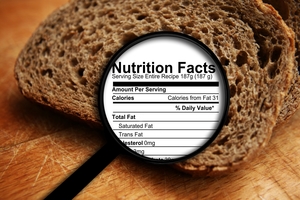Ask Our Experts: Listing Added Flavors on Your Food Labels
Labeling food is a complex task that requires staying current with a lot of regulations, so our experts receive many questions about the specifics. Here are a few questions we’ve handled recently regarding provisions for labeling flavors as “natural flavor”, “artificial flavor”, or “natural and artificial flavor” found in 21CFR101.22.

Q: If I have the following flavor compound, how do I list it in the ingredient list of the food to which I am adding it? Strawberry Flavor Blend (Ethyl Alcohol, Propylene Glycol, Natural Flavor)
A: If the natural flavor is derived from strawberries, the flavor blend can be listed in the ingredient list of another food as stated above. Alternatively, the natural flavor could be listed by its common or usual name: Strawberry Flavor Blend (Ethyl Alcohol, Propylene Glycol, Strawberry Flavor). Another option is to break out the sub-ingredients (alcohol, propylene glycol, natural flavor) into the overall ingredient list for the food. At this point it might be possible to deem the carrying agents (alcohol, propylene glycol) as incidental based on regulations in 21CFR101.100.
Q: What if the natural flavor is not sourced from strawberries?
A: These flavor blends are often labeled as “type” flavors. The natural flavor is derived from another food but mimics the flavor you are trying to characterize. The first example above could be appropriate but the name of the blend should be qualified so as to not mislead consumers about the source of the flavor: Strawberry Type Flavor Blend (Ethyl Alcohol, Propylene Glycol, Natural Flavor). You can also break out the sub-ingredients into the overall list for the food and at that point make the determination of whether any of the ingredients are incidental.
Q: What about a cheese flavor with the following ingredient list: Cheese Flavor Blend (Maltodextrin, Whey, Nonfat Dry Milk, Butterfat, Natural Flavor, TBHQ Antioxidant)?

A: This flavor blend can be listed in an ingredient list as stated above or you can break out the sub-ingredients into the overall ingredient list. If you want to deem any of the sub-ingredients as incidental, it is important that the purpose of each ingredient be evaluated. Maltodextrin is basically a carrier for the other sub-ingredients. Whey, nonfat dry milk, and butterfat are foods that are more than likely contributing to the flavor of cheese. Because of this and the fact that they are allergens, they would not be able to be deemed incidental. The TBHQ is serving as an antioxidant for the flavor. It may or may not continue to serve this function once the flavor is added to the food you are making. You will need to make the determination. Due to the functionality of many of the sub-ingredients, it might be easiest to list the flavor blend parenthetically in the ingredient list of your food.
Q: Is there anything I should know if the flavor is an artificial flavor?
A: Artificial flavors would be treated the same way as natural flavors. However, if you choose to call out an artificial flavor by its common or usual name instead of using the phrase, “artificial flavor”, you will need to point out in your labeling that you are using an artificial flavor, e.g., “…vanillin, an artificial flavor”.
Natural and artificial flavors are definitely a hot topic in labeling! Hopefully, these questions helped you make decisions about some of your own label issues. If you need more information, or have other labeling questions, we have resources for you:
- Labeling experts are available for consulting services or private training
- Labeling services help you cost-effectively meet FDA and USDA labeling requirements
- Labeling seminars offer training for you or your staff – dates coming up in April and May!

